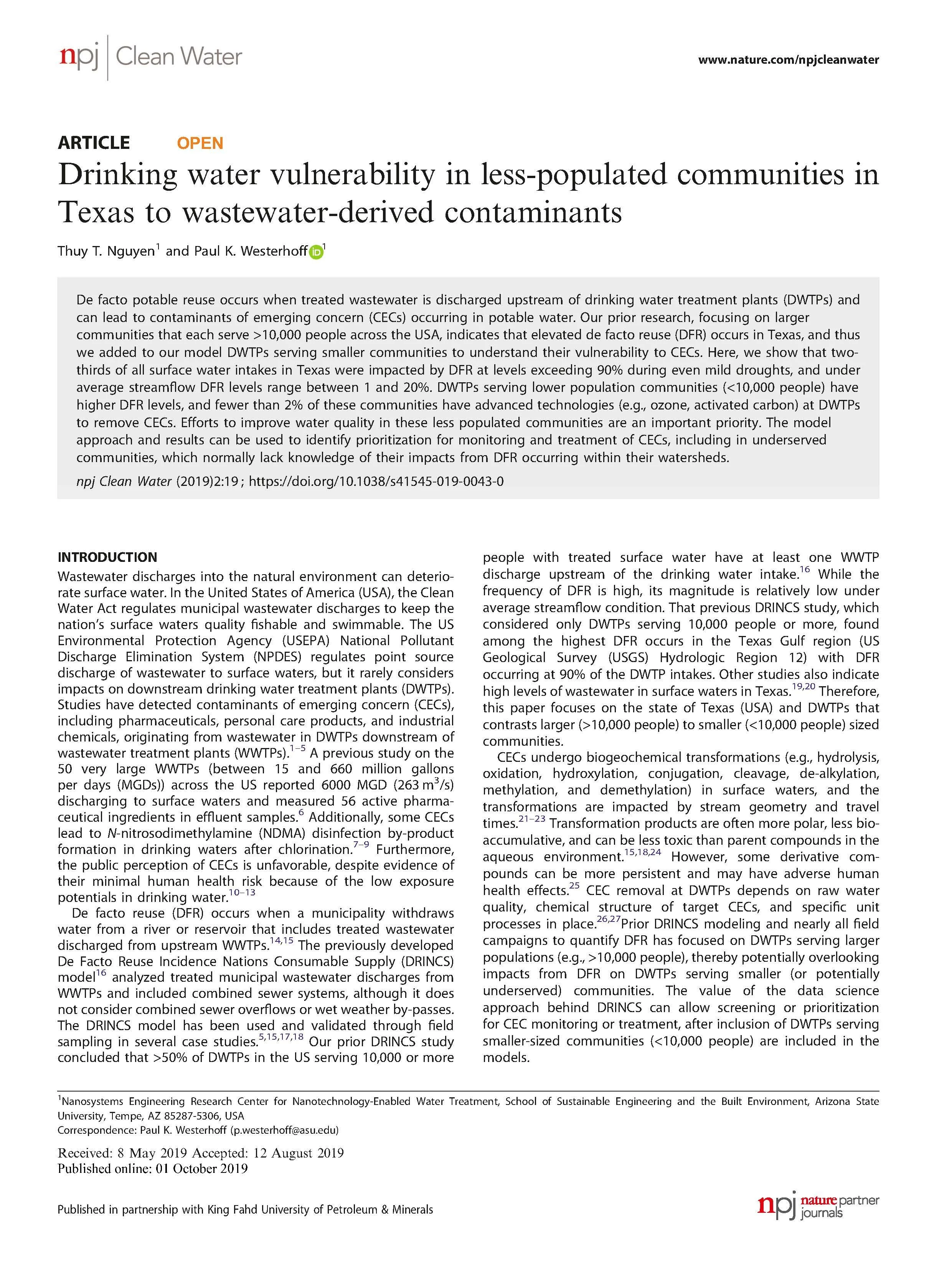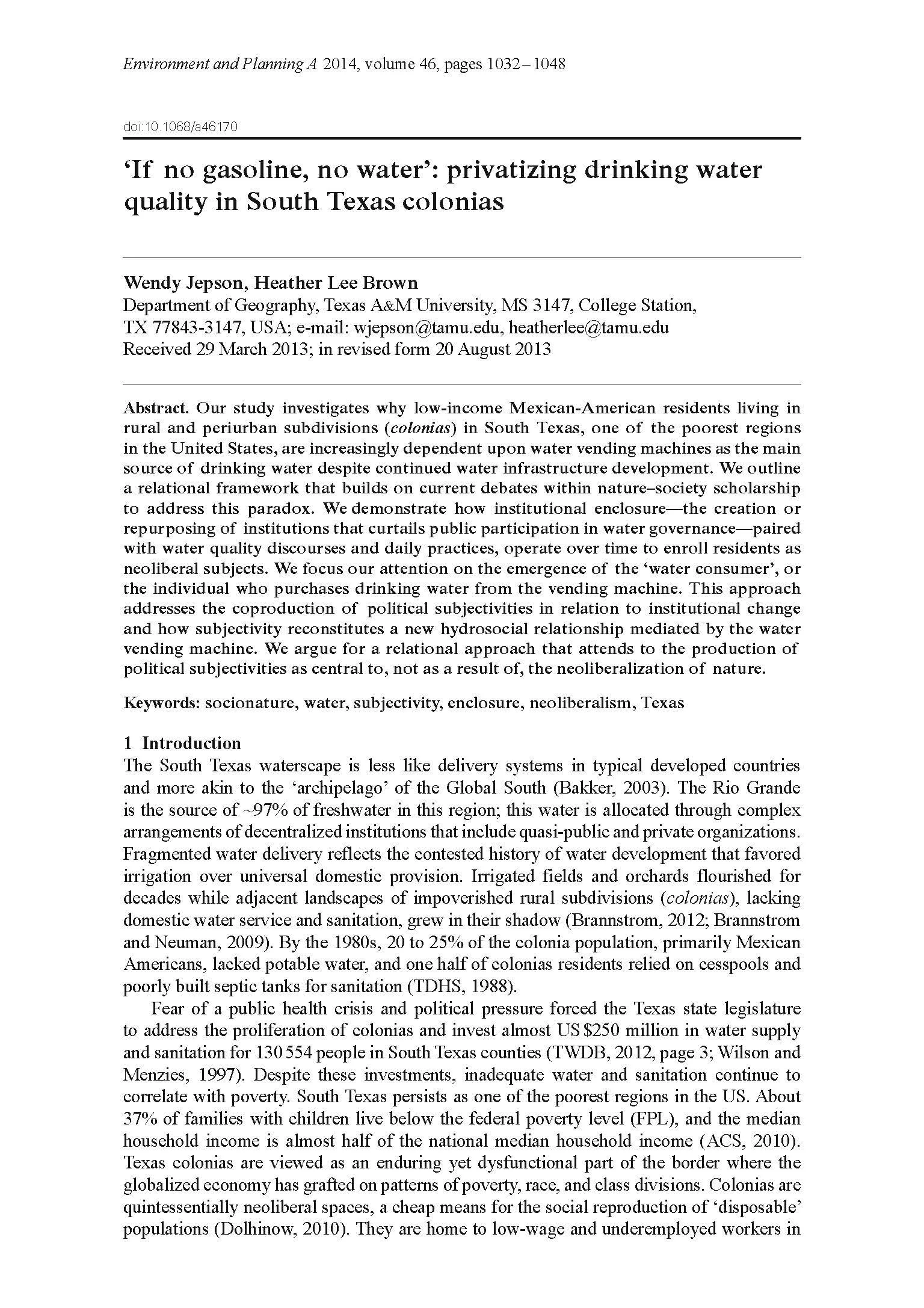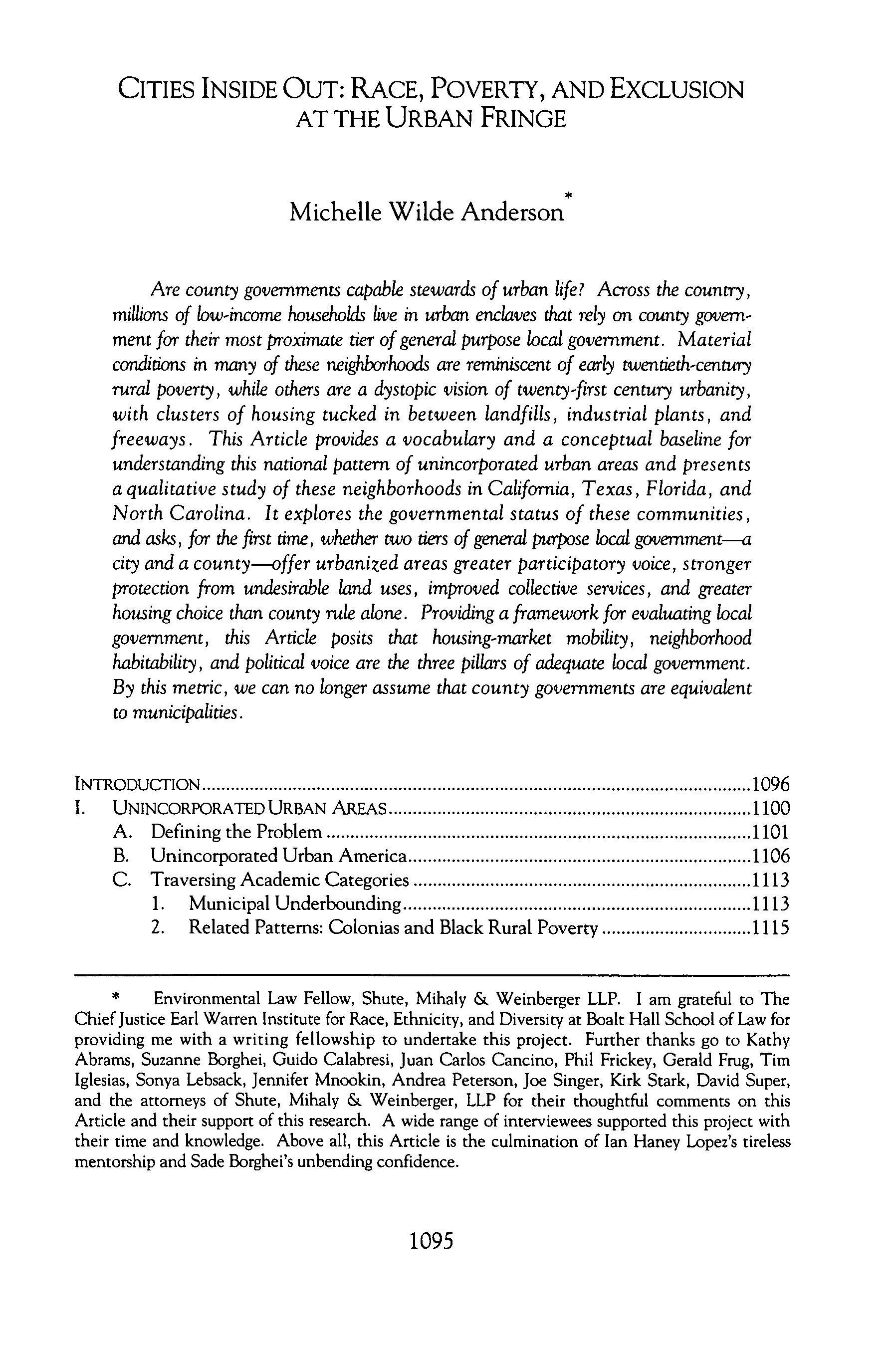Address the structural problems that have led to decades of suboptimal and inequitable outcomes in water. We will also examine ways to address those problems: pricing water to reflect its true value, providing affordable and universal access, catalyzing utility partnerships and consolidation, deploying smart water operations at scale, and using water as a key pathway to address the climate crisis.
Read MoreThis reports investigates equitable pathways to flood resilience with 9 cities through the United States.
Read MoreThis report presents an analysis of the water and sanitation access challenge in the United States, leveraging both quantitative and qualitative research. It proposes a plan of action to ensure equitable water access in our lifetimes, highlighting opportunities for action by the water sector, government agencies, philanthropy, nonprofits, and the public. Finally, it showcases the promising approaches communities have developed to ensure that their residents can turn on the tap or flush the toilet without a second thought.
Read MoreOur study investigates why low-income Mexican-American residents living in rural and periurban subdivisions (colonias) in South Texas, one of the poorest regions in the United States, are increasingly dependent upon water vending machines as the main source of drinking water despite continued water infrastructure development. We outline a relational framework that builds on current debates within nature–society scholarship to address this paradox. We demonstrate how institutional enclosure—the creation or repurposing of institutions that curtails public participation in water governance—paired with water quality discourses and daily practices, operate over time to enroll residents as neoliberal subjects. We focus our attention on the emergence of the ‘water consumer’, or the individual who purchases drinking water from the vending machine. This approach addresses the coproduction of political subjectivities in relation to institutional change and how subjectivity reconstitutes a new hydrosocial relationship mediated by the water vending machine. We argue for a relational approach that attends to the production of political subjectivities as central to, not as a result of, the neoliberalization of nature.
Read MoreThis paper develops a household water security measurement for low-income peri-urban and rural communities (‘‘colonias’’) on the US–Mexico border. The complexity of a ‘‘no-win’’ waterscape – where water service exists but is relatively expensive and water quality is still precarious – precludes a meaningful assessment and analysis because there are no existing measurement tools to capture water insecurity at the household level. Informed by critical environmental epistemology, the paper incorporates perspectives from colonias residents through qualitative research and survey development. The study advances previous work on water security by developing a cumulative scale for each characteristic of household water security then clusters households into water security classes using a non-parametric statistical procedure. The analysis identified four water security classes: (1) Water Secure; (2) Marginally Water Secure; (3) Marginally Water Insecure; (4) Water Insecure. While all households in the survey are connected to water service, only 45% are broadly ‘‘water secure’’ while 55% are ‘‘water insecure.’’ Statistical analysis confirmed the robustness of the scaling and clustering procedure, thus, providing evidence to describe household water insecurity in ‘‘no-win’’ waterscapes.
Read MoreAre county governments capable stewards of urban life? Across the country, millions of low-income households live in urban enclaves that rely on county government for their most proximate tier of general purpose local government. Material conditions in many of these neighborhoods are reminiscent of early twentieth-century rural poverty, while others are a dystopic vision of twenty-first century urbanity, with clusters of housing tucked in between landfills, industrial plants, and freeways. This Article provides a vocabulary and a conceptual baseline for understanding this national pattern of unincorporated urban areas and presents a qualitative study of these neighborhoods in California, Texas, Florida, and North Carolina. It explores the governmental status of these communities, and asks, for the first time, whether two tiers of general purpose local government-a city and a county-offer urbanized areas greater participatory voice, stronger protection from undesirable land uses, improved collective services, and greater housing choice than county rule alone. Providing a framework for evaluating local government, this Article posits that housing-market mobility, neighborhood habitability, and political voice are the three pillars of adequate local government. By this metric, we can no longer assume that county governments are equivalent to municipalities.
Read More








